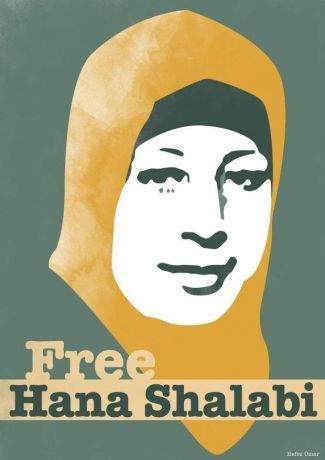News
You are here
Hunger strikes expose Israel's unjust policies

March 26, 2012
Hanaa’ Shalabi from Palestine’s West Bank is dying for justice. On hunger strike in an Israeli prison since February 16, as this article is written she is on day 39, and on the edge of death. Her hunger strike is highlighting the injustice of administrative detention, and exposing Israel’s human rights abuses to the world.
There are more than five thousand Palestinian prisoners in Israeli jails. More than three hundred are being held under administrative detention, including twenty Members of the Palestinian Legislative Council.
Israel uses administrative detention to bypass a detainee’s right to a fair trial. This type of detention allows Israel to keep the charges and evidence secret, so that it is impossible for detainees to defend themselves. The detention lasts six months, and can be renewed. Shalabi previously was held for 25 months under administrative detention orders. She was one of the 1,027 Palestinian prisoners freed as part of a deal to release captured Israeli soldier Gilad Shalit last year. She was re-arrested in the middle of the night four months following her release.
Shalabi’s appeal to the Israeli military court was denied on March 25. She is continuing her hunger strike demanding her immediate release, and demanding that the Israeli soldiers who treated her violently are held accountable for their actions. She was recently transferred to hospital where she remains under armed guard. Her family has not yet been allowed to visit her despite repeated requests by international and local organizations.
More than 20 other Palestinian prisoners held in Israeli prisons are on hunger strikes against the policy of administrative detention, some for more than three weeks. Shalabi’s next appeal will be to the High Court, where it is possible that the Israeli government will cave under the pressure as they did with Palestinian prisoner Khader Adnan, who Israel agreed to release from administrative detention on April 17 following a 66 day hunger strike.
Section:
- Log in to post comments










